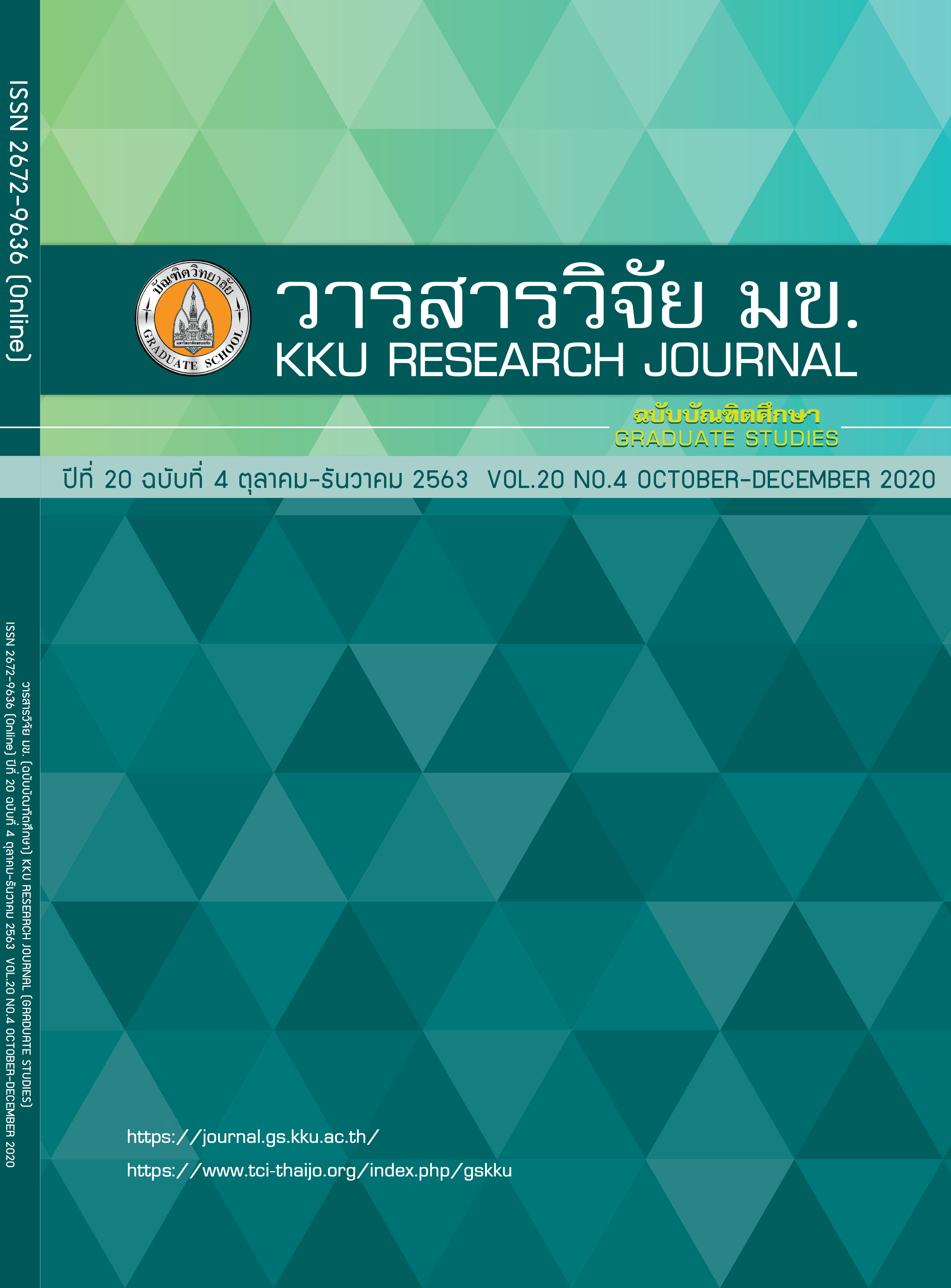The Comparison of Efficiency on The Analysis of Satisfaction on Teaching Performance using Sentiment Analysis by Ensemble Technique
Keywords:
Sentiment analysis, Text mining, Ensemble techniqueAbstract
Nowadays, the educational institutions emphasize the evaluation of the teaching performance of teachers. In addition to direct assessments, indirect assessments were conducted by surveying the satisfaction of learners using questionnaires. The analysis of closed-ended question data in the questionnaire can be easily done. But open-ended questions can be difficult, complex and may not be accurate due to bias from the data analyst. In this study, the sentiment analysis was used to analyze 1,577 comments classified to satisfaction polarity and compare the efficiency of classification by using ensemble techniques such as Vote, Bagging and Random Forest with standard techniques such as Decision Tree, Naïve Bayes and K-NN. The results showed that the Vote ensemble technique was the most effective.
References
Balahadia FF, Fernando MCG, Juanatas IC. Teacher’s performance evaluation tool using opinion mining with sentiment analysis. In: 2016 IEEE Region 10 Symposium (TENSYMP). 2016. p. 95–98.
Ravi K, Ravi V. A survey on opinion mining and sentiment analysis: tasks, approaches and applications. Knowledge-Based Systems. 2015;89:14–46.
Hussein DME-DM. A survey on sentiment analysis challenges. Journal of King Saud University - Engineering Sciences. 2018;30(4):330–338.
Songpan W. The analysis and prediction of customer review rating using opinion mining. In: Proceeding of the 2017 IEEE 15th International Conference on Software Engineering Research, Management and Applications (SERA). 2017. p. 71-77.
Pinmuang N, Jaree T. Classify Thai opinions on online media using text mining. Journal of Science & Technology MSU [Internet]. 2018;37(3). Available from: http://journal.msu.ac.th/upload/articles/article2153_38473.pdf. Thai.
Ravisuda T, Nives J. Thai Sentiment Analysis of Product Review Online Using Support Vector Machine. Engineering Journal of Siam University. 2017;18(1). Thai.
Pattaraporn C, Wararat S, Somjit A, Saiyan S. Analysis of Affecting Factors to Customer Reviews using Opinion Mining. In: Proceeding of the Thirteenth National Conference on Computing and Information Technology. 2017. p. 44–50. Thai.
Kechaou Z, Ammar MB, Alimi AM. Improving e-learning with sentiment analysis of users’ opinions. In: Proceeding of the 2011 IEEE Global Engineering Education Conference (EDUCON). 2011. p. 1032–1038.
Munezero M, Montero CS, Mozgovoy M, Sutinen E. Exploiting Sentiment Analysis to Track Emotions in Students’ Learning Diaries. In: Proceedings of the 13th Koli Calling International Conference on Computing Education Research [Internet]. New York, NY, USA: ACM; 2013. p. 145–152. (Koli Calling ’13). Available from: http://doi.acm.org/10.1145/2526968.2526984
Rani S, Kumar P. A Sentiment Analysis System to Improve Teaching and Learning. Computer. 2017 May;50(5): 36–43.
Barnaghi P, Ghaffari P, Breslin JG. Opinion mining and sentiment polarity on twitter and correlation between events and sentiment. In: Proceeding of the 2016 IEEE Second International Conference on Big Data Computing Service and Applications (BigDataService). IEEE; 2016. p. 52–57.
Sukhum K, Nitsuwat S, Haruechaiyasak C. Opinion detection in Thai political news columns based on subjectivity analysis. In: Proceeding of the 7th International Conference on Computing and Information Technology. 2011.
Fang X, Zhan J. Sentiment analysis using product review data. Journal of Big Data. 2015;2(1):5.
Puttida S, Charun S, Thanrat S. The Comparison of Data Classification Efficiency by using ENSEMBLE Technique for Analysis of Factors Affecting on the National Educational Test Results of Vocational Education (V-NET). In: Proceeding of the 13th National Conference on Computing and Information Technology. p. 674–679. Thai.
Araque O, Corcuera-Platas I, Sánchez-Rada JF, Iglesias CA. Enhancing deep learning sentiment analysis with ensemble techniques in social applications. Expert Systems with Applications. 2017;77:236–246.
Supathep S, Phayung M, Piyanoot V. Ensemble for Highly Imbalanced Text Classification base in Deep Learning with Feature Selection and Data Balancing Techniques. In: Proceeding of the 13th National Conference on Computing and Information Technology. p. 20–25.



